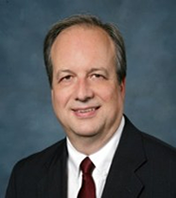Children sometimes get in trouble outside the home. We all have an interest in helping them to learn about consequences and about making amends. We have an interest in helping them turn their lives in a better direction. People of Christian faith can see these principles in the gospel messages of grace and redemption and Jesus’ own special care for children.
And yet, too often the children of our communities who get in trouble are not met with services that live up to these principles. Too often, they are approached with fear and with harshly punitive responses. They are not helped to get back to school, and their parents and communities are not drawn into finding better solutions. They are even channeled into adult courts and correctional situations that can harden them and make them part of the tragic mass incarceration phenomenon of recent years.
These punishment-focused approaches move from unhelpful to unjust when children from economically disadvantaged families and African-American young people and other social groups are more likely to get harsher treatment. This bias is widespread and very damaging, and churches and people of good conscience denounce it, repent of it, and work for a wholly new approach.
The Kentucky Council of Churches meeting in annual assembly addressed these issues on October 24-25, 2014, by learning about an approach called “Restorative Justice.” The restorative justice movement sheds the light of the gospel on facets of our existing criminal justice system in the US. Practitioners of this approach are active in several of Kentucky’s cities and towns, working to help divert children and adolescents from the wrong path to a better one.
As part of the emphasis on restorative justice, the Council passed two resolutions that will guide the work of many churches in policy advocacy and education and in practical community activities. The first of these is titled “Children in Crisis.” The second is a revision of the Juvenile Justice section of the Council’s larger policy on Criminal Justice. The statements include theological and biblical insights and emphasize prevention, involvement of parents, and education for prosecutors and judges. Please consider using these statements in your own work, Sunday Schools, preaching and other involvements. All policy statements of the Kentucky Council of Churches are available on our web site here.




